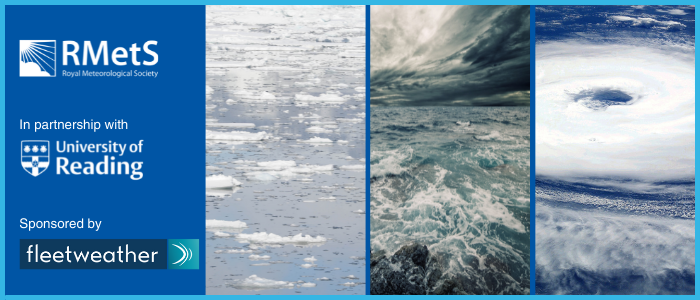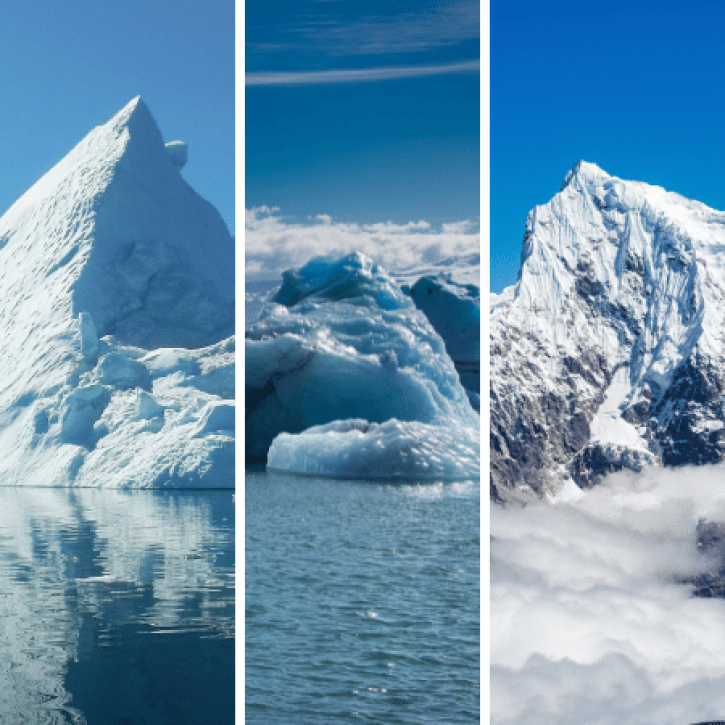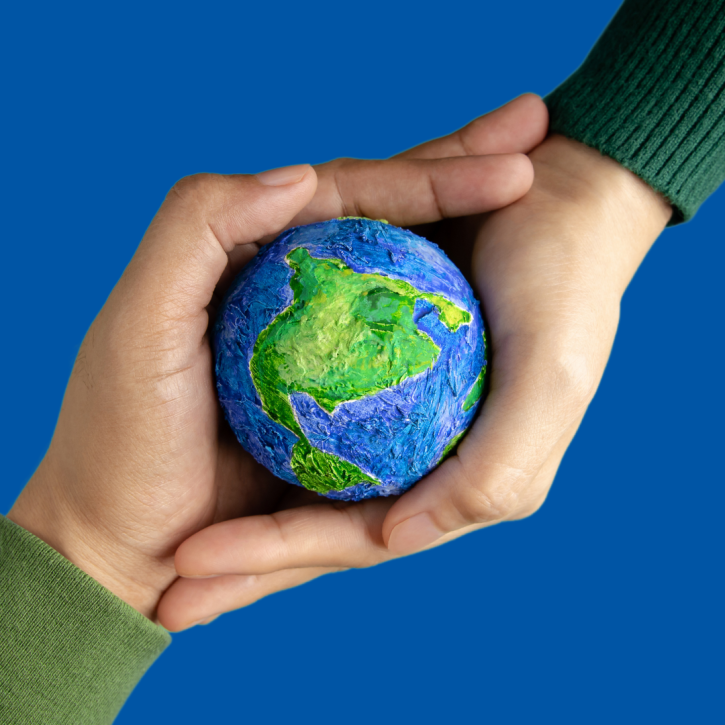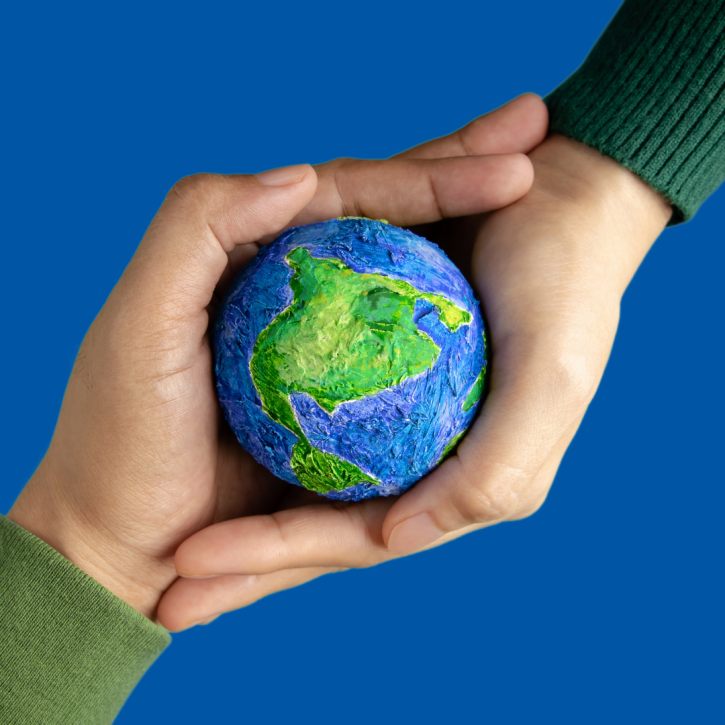

MASTERCLASS | Understanding Marine Environments: Satellite Earth Observation & Numerical Modelling
LOCATION
SPEAKER: Dr Samantha Lavender, Director, Pixalytics Ltd
This session was part of our Masterclass Series The Oceans and Atmosphere: Maritime Meteorology and Climate, strengthening our understanding of the interactions between the ocean and the atmosphere in partnership with the University of Reading and sponsored by Fleetweather.
This Masterclass Series covered broad topics relevant to marine meteorology such as tropical cyclone
development and the latest science relating to conceptual models; changes in Arctic sea ice and future
projections that will impact marine routing through the Arctic; and recent developments in ocean modelling
and atmospheric/ocean coupling in numerical weather prediction.
The webinars were free of charge and was be held from 15:00 to 16:30 BST with a presentation followed by the opportunity for questions and discussion with the speaker. Whilst the webinars are part of a series you can choose which to attend and attendance at all three is not compulsory.
Sponsored by
Understanding the Marine Environment through Satellite Earth Observation and Numerical Modelling.
The seminar will focus on the different satellite technologies applicable to understanding the marine
environment, from microscopic marine biology to physical oceanography and maritime surveillance. Satellite derived datasets often have the advantages of a global view alongside uniform spatial and temporal
coverage. Also, with datasets extending back at least a couple of decades, they provide time-series if not full
climatological-scale information. However, satellite-derived datasets tend to be based on techniques that only
capture information about surface features, so the data is often combined with numerical modelling to provide
a more complete picture. In turn, numerical modelling will assimilate well-characterized satellite data to
improve the prediction quality, and machine learning is increasingly used to data-mine these datasets.
Learning objectives and key points:
- The availability of free-to-access and commercial satellite Earth observation datasets
- New technologies increasing what is derivable from space
- Examples of how satellite data and numerical modelling are used together
Dr Samantha Lavender is Managing Director of Pixalytics Ltd with over 20 years of research
experience focusing on satellite Earth observation to help answer questions about our planet’s
resources and behaviour. She originally studied Applied Oceanography and Marine Computer
Applications at the University of Plymouth and went on to do a PhD focused on airborne remote
sensing of the Humber sediment plume. After working for Plymouth Marine Laboratory and then the
University of Plymouth as a Lecturer, she moved into the commercial environment, focusing on the
applied use of satellite Earth observation.
She has always been a scientist interested in learning and collaborating across a range of different
disciplines, developing products for a broad community of users, including being an author of the
‘Practical Handbook in Remote Sensing’. Activities support marine monitoring, water resources
management and landscape assessment, including UK Space Agency International Partnership
Programme projects focused on droughts & floods in Uganda, agriculture in Colombia and
sustainable sand extraction in Kenya.
Sea Ice in the Climate System I15:00 - 16:30 I 6th October 2021
SPEAKER I Dr David Schroeder, Centre for Polar Observation and Modelling, University of Reading
Tropical Cyclones I 15:00 - 16:30 I 20th October 2021
SPEAKER I Professor Pier Luigi Vidale, University of Reading
This Series continues the success of previous years' Masterclasses and is intended for an audience with an established level of understanding of the topics being discussed.
The Series is aimed at providing CPD for those advancing the science and working in the production of
services for shipping, offshore activities (drilling, wind and tidal energy), catastrophe modelling, insurance,
search and rescue and naval operations. It will also provide an update in the science of the interactions between
the oceans and atmosphere in the development of weather systems and the impact of climate change.
In particular, the Masterclasses are ideal for RMets, CMets and relevant organisations and aims to support participants in:
- Developing an in-depth understanding of meteorological and climate science (theory, principles, concepts,techniques) with relevance to its application
- Keeping up-to-date with current scientific developments and recent advances in the field
SPEAKER: Dr Samantha Lavender, Director, Pixalytics Ltd
This session was part of our Masterclass Series The Oceans and Atmosphere: Maritime Meteorology and Climate, strengthening our understanding of the interactions between the ocean and the atmosphere in partnership with the University of Reading and sponsored by Fleetweather.
This Masterclass Series covered broad topics relevant to marine meteorology such as tropical cyclone
development and the latest science relating to conceptual models; changes in Arctic sea ice and future
projections that will impact marine routing through the Arctic; and recent developments in ocean modelling
and atmospheric/ocean coupling in numerical weather prediction.
The webinars were free of charge and was be held from 15:00 to 16:30 BST with a presentation followed by the opportunity for questions and discussion with the speaker. Whilst the webinars are part of a series you can choose which to attend and attendance at all three is not compulsory.
Sponsored by
Understanding the Marine Environment through Satellite Earth Observation and Numerical Modelling.
The seminar will focus on the different satellite technologies applicable to understanding the marine
environment, from microscopic marine biology to physical oceanography and maritime surveillance. Satellite derived datasets often have the advantages of a global view alongside uniform spatial and temporal
coverage. Also, with datasets extending back at least a couple of decades, they provide time-series if not full
climatological-scale information. However, satellite-derived datasets tend to be based on techniques that only
capture information about surface features, so the data is often combined with numerical modelling to provide
a more complete picture. In turn, numerical modelling will assimilate well-characterized satellite data to
improve the prediction quality, and machine learning is increasingly used to data-mine these datasets.
Learning objectives and key points:
- The availability of free-to-access and commercial satellite Earth observation datasets
- New technologies increasing what is derivable from space
- Examples of how satellite data and numerical modelling are used together
Dr Samantha Lavender is Managing Director of Pixalytics Ltd with over 20 years of research
experience focusing on satellite Earth observation to help answer questions about our planet’s
resources and behaviour. She originally studied Applied Oceanography and Marine Computer
Applications at the University of Plymouth and went on to do a PhD focused on airborne remote
sensing of the Humber sediment plume. After working for Plymouth Marine Laboratory and then the
University of Plymouth as a Lecturer, she moved into the commercial environment, focusing on the
applied use of satellite Earth observation.
She has always been a scientist interested in learning and collaborating across a range of different
disciplines, developing products for a broad community of users, including being an author of the
‘Practical Handbook in Remote Sensing’. Activities support marine monitoring, water resources
management and landscape assessment, including UK Space Agency International Partnership
Programme projects focused on droughts & floods in Uganda, agriculture in Colombia and
sustainable sand extraction in Kenya.
Sea Ice in the Climate System I15:00 - 16:30 I 6th October 2021
SPEAKER I Dr David Schroeder, Centre for Polar Observation and Modelling, University of Reading
Tropical Cyclones I 15:00 - 16:30 I 20th October 2021
SPEAKER I Professor Pier Luigi Vidale, University of Reading
This Series continues the success of previous years' Masterclasses and is intended for an audience with an established level of understanding of the topics being discussed.
The Series is aimed at providing CPD for those advancing the science and working in the production of
services for shipping, offshore activities (drilling, wind and tidal energy), catastrophe modelling, insurance,
search and rescue and naval operations. It will also provide an update in the science of the interactions between
the oceans and atmosphere in the development of weather systems and the impact of climate change.
In particular, the Masterclasses are ideal for RMets, CMets and relevant organisations and aims to support participants in:
- Developing an in-depth understanding of meteorological and climate science (theory, principles, concepts,techniques) with relevance to its application
- Keeping up-to-date with current scientific developments and recent advances in the field






